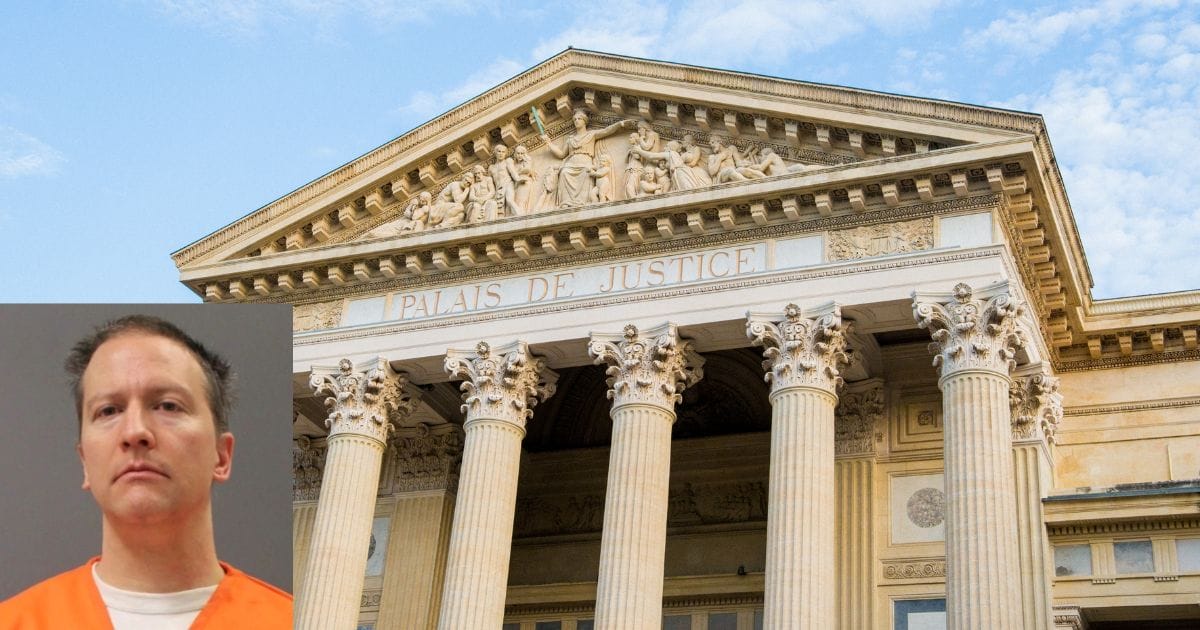Inset: Derek Chauvin
Derek Chauvin, the convicted murderer and Minneapolis police officer who killed George Floyd three years ago, lost his appeal to have his case reviewed by the U.S. Supreme Court.
The High Court on Monday, November 20, rejected an appeal by Chauvin’s attorneys who disagreed with jurors after they found Chauvin guilty of second-degree manslaughter in Floyd’s death.
In his appeal, Chauvin claimed he had not received a fair trial because jurors in his case might have had a vested interest against acquitting, out of fear of instigating more street protests and violence.
Chauvin’s lawyers have said there were various reasons to overturn his conviction, including a State District Court depriving the former officer of his right to a fair trial by denying his request for a change of venue, despite “pervasive adverse publicity.”
The Supreme Court rejected Chauvin’s appeal without comment or a recorded vote. Chauvin was sentenced to 22-and-half years in prison for killing Floyd. The sentence exceeded Minnesota’s sentencing guidelines range of 10 years and eight months to 15 years.
Chauvin later pleaded guilty to federal charges of violating Floyd’s civil rights and was sentenced to 21 years in prison to run concurrently with his state sentence.
On May 25, 2020, Floyd, a 46-year-old Black man was apprehended by four police officers who were called to a grocery store in Minneapolis. Floyd was suspected of using a counterfeit $20 bill to purchase some items.
During Floyd’s arrest, Chauvin was caught on cellphone video with his knee on Floyd’s neck for over nine minutes, as Floyd remained on the ground. Floyd said over 20 times that he could not breathe. During the final two minutes, Floyd was unconscious and had no pulse, but Chauvin kept his knee on Floyd’s neck and back even as emergency medical technicians arrived to treat Floyd. The video shows Floyd going limp and being carried away by police. Floyd was taken to a hospital where he died. An autopsy concluded that Floyd’s heart stopped after being restrained and his neck compressed.
Floyd’s murder sparked worldwide protests and renewed calls for racial justice against police brutality. In America, major cities struggled to handle massive protests, some of which turned violent with looting and altercations. In Minneapolis, the city settled a wrongful death lawsuit with Floyd’s family for $27 million.
Last year, the three officers who did nothing but watch Chauvin kill Floyd were found guilty in federal and state court on various charges.
Jurors believed the former officers, J. Alexander Kueng, Thomas Lane and Tou Thao, and all were convicted of depriving Floyd of his civil rights, while acting under government authority when they failed to give him medical aid. Kueng and Thao, additionally, were convicted of not intervening to stop their fellow officer Chauvin from using excessive force.
Thao, who kept a crowd of people away from Floyd, was sentenced to three-and-a- half years in prison, and Kueng, who helped hold Floyd down, was given three years. Lane, who avoided trial by pleading guilty to federal and state charges, received a federal sentence of two-and-a-half years in prison. In September, Lane was sentenced to three years in state prison on top of his federal prison sentence.






